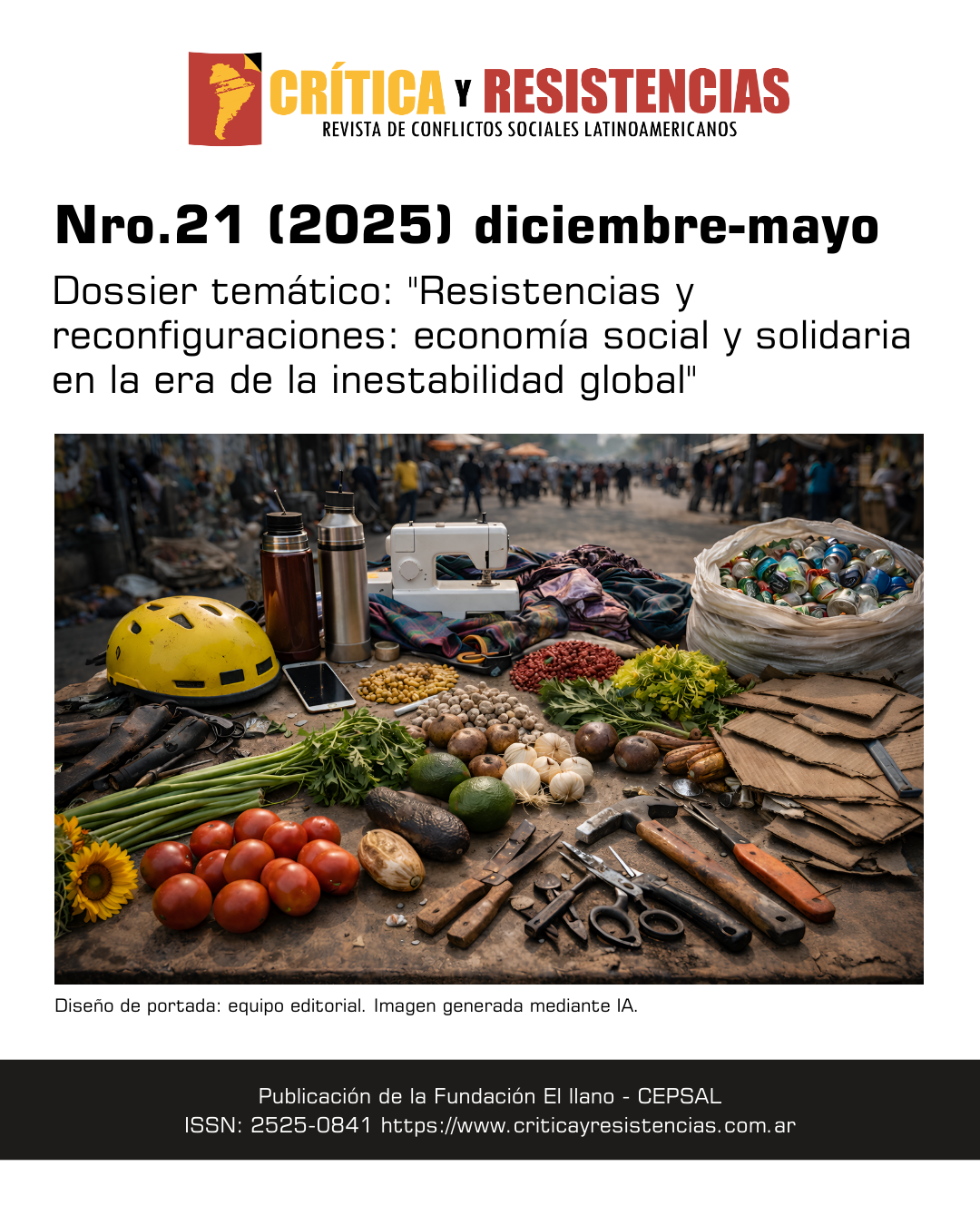![]()

Redes sociales

Crítica y Resistencias. Revista de conflictos sociales latinoamericanos - ISSN: 2525-0841
Organismo editor: Fundación El llano - Centro de Estudios Políticos y Sociales de América Latina (CEPSAL)
Dirección: Argañaraz y Murguia 3575, Córdoba, Argentina - C.P.: X5014HOG
criticaresistencias@gmail.com | llanocordoba@gmail.com
www.criticayresistencias.com.ar | www.llanocordoba.com.ar
